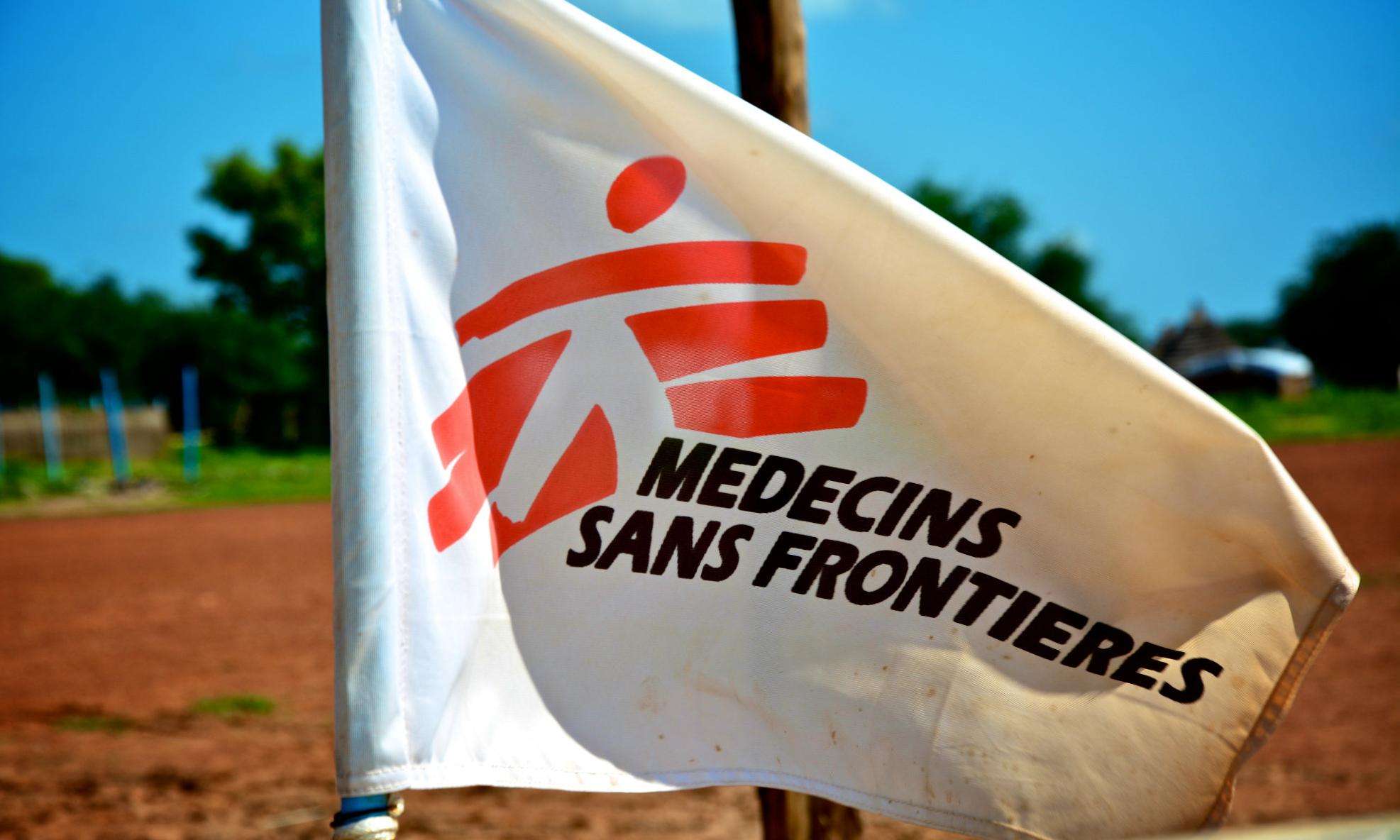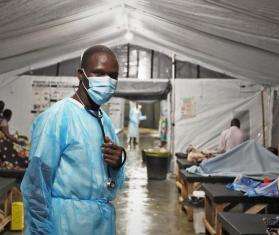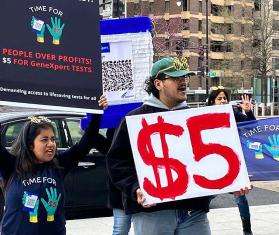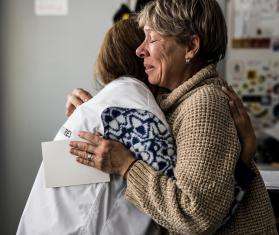October 27, 2017, New York, NY
Speech by Jason Cone
Executive Director, Doctors Without Borders/Médecins Sans Frontières (MSF) USA
Brain & Behavior Research Foundation
Good Evening. It is a great honor to accept the Pardes Humanitarian Prize in Mental Health tonight, on behalf of Doctors Without Borders/Médecins Sans Frontières (MSF) and all my colleagues working in mental health programs all over the world, especially those in attendance tonight, Dr. Kaz de Jong and Dr. Frederique Drogoul.
We are grateful for this recognition from the Brain & Behavior Research Foundation. It is our hope that this award will shine a light on the immense mental health needs faced by people dealing with the scars of war and conflict, forced migration, sexual violence, the isolation of psychiatric disorders, and the stigma of devastating diagnoses such as HIV and tuberculosis.
As an international medical humanitarian organization, Doctors Without Borders/Médecins Sans Frontières, or MSF, we provide medical care where the needs are greatest. Our work takes us to war zones, to natural disasters, to search and rescue vessels on the Mediterranean, to places where people are dying of neglected diseases. Our doctors and nurses are often seen treating physical ailments: bandaging the war-wounded, rehydrating a cholera patient, performing an emergency Caesarean section.
But some wounds are invisible. And they manifest in violence, depression, or anxiety.
An older child in a camp for Syrian refugees in Jordan wetting the bed, or having nightmares. Mothers or fathers who become violent with their children, tormented by flashbacks of the violence they fled and the suffering endured. Women who’ve survived sexual assault by criminal gangs en route from Central America to the U.S., carrying guilt and shame for the violence of others.
This is why for close to 20 years we have treated mental health as part of our emergency work. In 1998, MSF formally recognized the need to implement mental health and psychosocial interventions as part of our emergency work.
MSF managed 143 mental health projects in 49 countries, including 229,000 mental health sessions, in 2016. Our programs aim primarily to reduce people’s symptoms and improve their ability to function. Often this work is done by local counselors specially trained by MSF. MSF psychologists or psychiatrists provide technical support and clinical supervision. When appropriate, MSF’s counseling services reinforce or complement mental healthcare approaches that already exist in the local community.
The people we are treating around the world have faced horrific violence, unimaginable loss, and the indignities and dangers of displacement. We understand that this type of trauma can lead to mental health issues that immobilize people at just the time when they need to take action for themselves and their families.
At MSF, we say there is no health care without mental health care. We provide medical emergency work—treating gunshot wounds, malnutrition, burns, and epidemics to try to ensure our patients’ survival. But mental health care is emergency work: by providing mental health and psychosocial support, we are helping our patients become functional again, and this gives people a higher likelihood of survival and the chance to rejoin their communities.
We are in the midst of the largest migration of people since World War II. More than 65 million have been forced from their homes. In Bangladesh, in Libya, in Mexico and Syria—the migration crisis is playing out all over the world, with immense repercussions for the mental health of millions.
My colleagues and I see the implementation of policies that send people back into war zones, prevent people from fleeing war zones, and block them from crossing borders and reaching safe shores.
There is no end in sight to this crisis. As humanitarian actors and as a medical community, we are just beginning to grapple with the mental health impact of these conflicts, and of government policies that expose people to more violence, trauma and emotional suffering.
As an organization on the frontline of some of the world’s major conflicts, we treat people in war zones and along the migration route; we hear their stories and witness the mental toll this conflict and displacement is taking. Over and over as our aid workers finish their assignments, they hear these words from our patients: “Don’t forget us.”
We never forget our patients. We consider it our mission to bear witness and continue to talk about our patients and their challenges long after we’ve finished our assignments.
Thank you to the Brain & Behavior Research Foundation, for shining a light and supporting this work. Most of all, thank you for helping us ensure that we live up to our word and that our patients are never forgotten.
Thank you.




